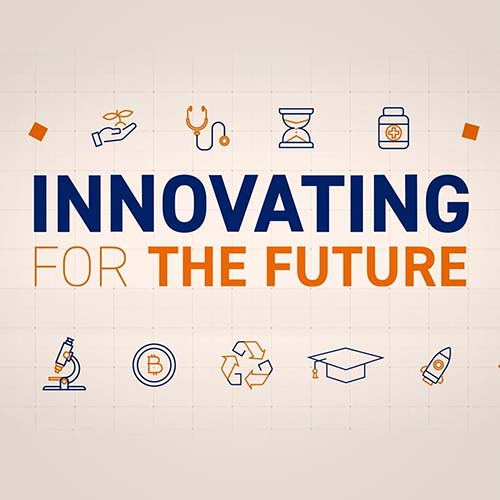Highlights
Singapore hosts optimistic ending to Bloomberg quantum documentary
Bloomberg Originals has released a documentary on quantum computing that features research in Singapore. The episode of The Future with Hannah Fry, posted online on 26 September, received over a million views on YouTube within a week.
‚ÄúOn the gleaming streets of Singapore, the quantum revolution has found fertile ground,‚ÄĚ says the show‚Äôs host, Hannah Fry, as the scene cuts to Singapore‚Äôs skyline.
Hannah Fry is a Professor in the Mathematics of Cities at University College London in the UK. She is also an author and acclaimed presenter, with two episodes in her first series for Bloomberg Originals, released in 2023, nominated for Emmy awards.
She explores quantum technologies in the third episode of the second series, visiting three places around the world to explore the potential impacts of quantum computing and political questions around it.
Both series of The Future with Hannah Fry are free to watch online at https://www.bloomberg.com/originals/series/the-future-hannah-fry
New York, London, Singapore
The quantum computing episode opens at IBM’s research centre in the US, before moving to the UK for meetings with quantum experts from HSBC and Toshiba, finally arriving at the Centre for Quantum Technologies (CQT) in Singapore.
Here, Professor Fry interviewed CQT Principal Investigator Alexander Ling about his research towards satellite networks for quantum communication. Alexander is also a Professor in the Department of Physics at the National University of Singapore (NUS).
She visited his lab to see the SpooQy nanosatellite and a rooftop in the NUS campus where his group operates a telescope that will exchange quantum signals with future quantum satellites. For now, the team are testing the capabilities of this optical ground station by tracking conventional satellites. The researchers expect to make the first links with quantum satellites in 2025.
The episode also includes scenes filmed in the lab of CQT Principal Investigator Manas Mukherjee, whose group works with ion traps for quantum computing and metrology.
A race with more than one winner
The episode explores competition between the US and China in developing quantum technologies.
Alexander spoke on the history of collaborations in the field, noting ‚ÄúQuantum technology was developed in an era when international relations was more relaxed, let‚Äôs put it that way. It started in the late ‚Äė80s, early ‚Äė90s and everyone was open to having an exchange of info and ideas at that time.‚ÄĚ
Now, he said, everybody is aware of the geopolitical tensions. His view: ‚ÄúEverybody seems to have high expectations for when quantum technologies will deliver those benefits. If you come in with controls too early, before a lot of the problems are worked out, you are probably going to be pushing the date of deployment, the date when you see those benefits, much further into the future.‚ÄĚ
The episode ends soon after this exchange, in the sunset on the rooftop where CQT’s ground station sits.
Professor Fry is optimistic in her closing thoughts. ‚ÄúI don‚Äôt think this is like races that we‚Äôve had before. I don‚Äôt think this is like the space race or the nuclear arms race, because I don‚Äôt think that we are in a situation where you can have only one winner,‚ÄĚ she said.
Learn more
Related Stories
 | SpooQy-1 shows promise of nanosatellites for quantum networks June 25 2020 |
Singapore announces National Quantum Strategy May 30 2024 | |
 | Innovating for a quantum future May 19 2022 |






